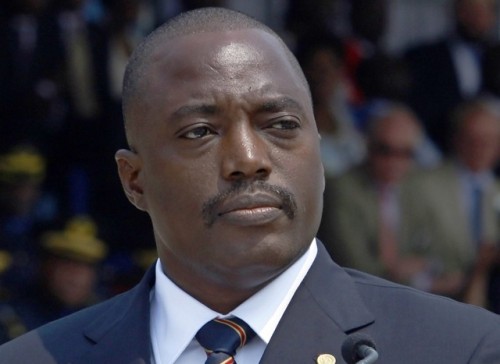
DAKAR- Congolese security officials recruited more than 200 exiled rebel fighters to help suppress protests against President Joseph Kabila a year ago, ordering them to use lethal force, Human Rights Watch said in a report on Monday.
Reuters
Security forces killed dozens during demonstrations in December 2016 when a delay to presidential elections and Kabila’s refusal to step down sparked widespread unrest.
The HRW report was based on interviews with 13 fighters from the M23 rebel group who it says were recruited in neighboring Rwanda and Uganda, M23 leaders and nine Congolese security and intelligence officials, most of whom were cited anonymously.
Congo’s government spokesman declined to comment.
Delphin Kahimbi, the head of Congo’s military intelligence named in the report as one of the operation’s coordinators, denied he recruited M23 fighters, calling the report’s findings “ridiculous and absurd”.
Elie Mutela, a senior member of M23’s political wing, said he was not aware M23 members had participated in Congolese security operations.
The M23 rose up against the government in eastern Congo in 2012 in one of a series of insurrections driven by disputes over ethnicity, land and resource rights that have cost millions of lives over the past two decades.
- Chamisa under fire over US$120K donation
- Mavhunga puts DeMbare into Chibuku quarterfinals
- Pension funds bet on Cabora Bassa oilfields
- Councils defy govt fire tender directive
Keep Reading
The M23 was defeated by Congolese and U.N. troops in late 2013. The government subsequently promised amnesty for most of the hundreds of rebels who fled to neighboring Rwanda and Uganda, but the process has stalled.
Congo’s security services turned to M23 last year because Kabila did not trust his own security forces, the report said. Fighters were deployed to Kinshasa, Congo’s second city Lubumbashi and the eastern city of Goma, integrated into police, army and presidential guard units.
They were ordered to use lethal force against protesters, the report said. For their service, M23 members received hundreds of dollars each. Recruiters also warned they would lose all protection if Kabila left power.
People from eastern Congo would “be chased out of Kinshasa like dogs or sorcerers,” if Kabila stepped down, a Congolese general warned one M23 member cited in the report.
Richard Karemire, Uganda’s military spokesman, denied M23 fighters were recruited in Uganda. Rwandan officials could not be immediately reached for comment.
Many of the recruited rebels have returned to their exiles in Uganda and Rwanda but more have been recruited for future operations, the report said. Congo’s military intelligence chief Kahimbi denied that.
Kabila was required by the constitution to step down after an election to replace him in 2016 but the vote has been delayed until December 2018. Opposition leaders and activist groups have vowed fresh protests this month to try to force him from power.











